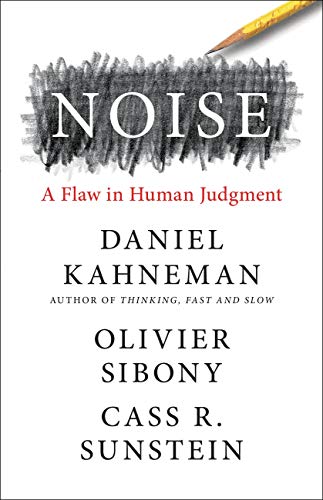Noise: A Flaw in Human Judgment Link to heading
Summary Link to heading
“Noise: A Flaw in Human Judgment,” written by Daniel Kahneman, Cass R. Sunstein, and Olivier Sibony, explores the pervasive presence of “noise” in human decision-making. The authors define “noise” as the unwanted variability in judgments made by individuals or groups faced with similar problems. Unlike bias, which consistently pulls judgments in one direction, noise represents a random scatter of judgments. The book delves into various domains, such as criminal justice, medicine, and business, illustrating how noise can distort decisions. The authors advocate for “decision hygiene” practices to reduce noise and improve judgment quality.
Review Link to heading
“Noise” has been widely regarded as a significant contribution to understanding human error and decision-making flaws. The book is praised for its thorough research, lucid writing, and practical implications for various fields. One of its strengths is the diverse examples illustrating the impact of noise across disciplines. However, some critics argue that the book is dense with information and may at times feel repetitive or theoretical, which could overwhelm readers seeking more straightforward solutions. Despite this, the book’s exploration of a relatively underappreciated topic in judgment and decision-making research stands out as a notable achievement.
Key Takeaways Link to heading
Noise vs. Bias: Understand the distinction between noise (random variability) and bias (systematic deviation), and recognize that addressing both is necessary for improved decision-making.
Decision Hygiene: Implement techniques—such as checklists, structured protocols, and group decision frameworks—to reduce noise in judgment processes.
Noise Audit: Organizations should conduct “noise audits” to measure the consistency of judgments among decision-makers and identify areas for improvement.
Diverse Perspectives: Incorporate a variety of perspectives and independent judgments to counteract noise and enhance decision quality.
Recommendation Link to heading
This book is highly recommended for professionals in fields like law, medicine, business, and policymaking, where decision-making is critical. It is also valuable for anyone interested in psychology, behavioral economics, and improving personal or organizational judgment processes. By understanding and mitigating noise, readers can refine their decision-making skills and enhance the quality of outcomes in their respective areas.
